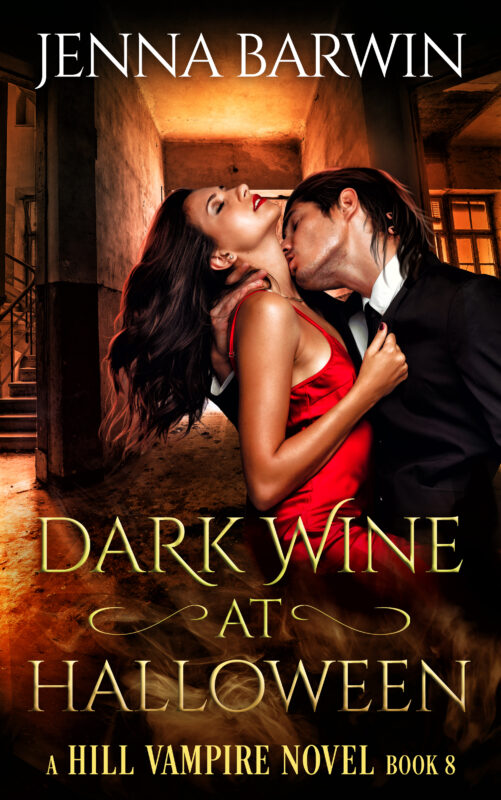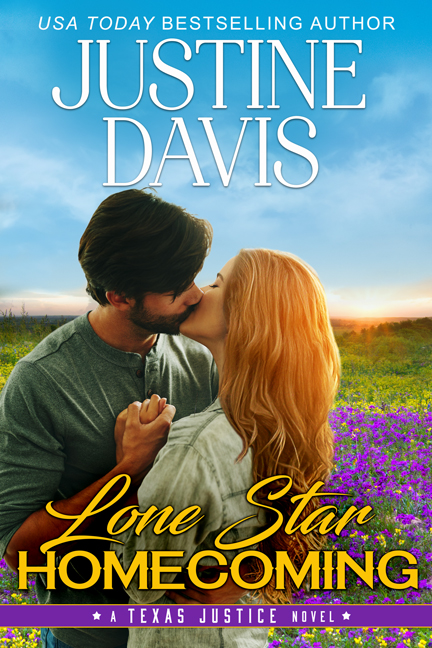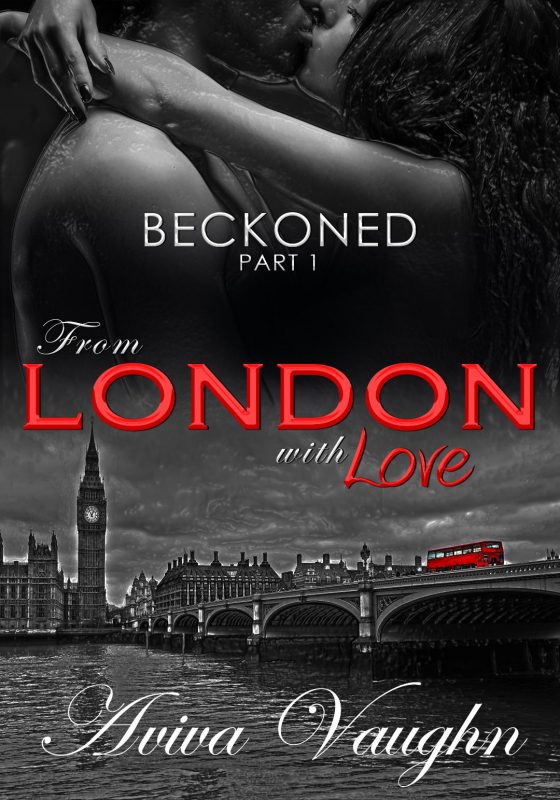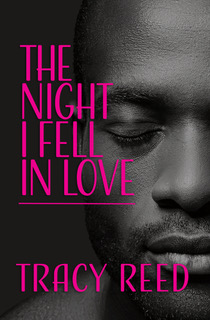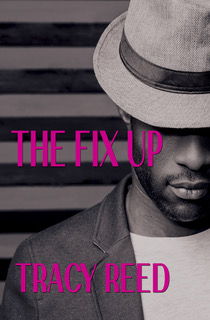Critique Groups or Beta Readers?
March 3, 2019 by Janet Elizabeth Lynn and Will Zeilinger in category Partners in Crime by Janet Elizabeth Lynn & Will Zeilinger tagged as Beta Readers, critique groups, editing, Proofreading
What’s the difference and why do we need them anyway?
by
Will Zeilinger
Janet and I co-write the Skylar Drake Mystery series and we’ve had people say to us, “I guess you proofread each other’s work.”
Both of us are intimately involved in the writing and initial editing, as such, we can get too close to it and sometimes miss big issues. That’s why we would never submit something for publication without the help of critique groups and/or beta readers to assist us.
What exactly, are we talking about? Maybe this will help.

Beta Readers are individuals who evaluate your manuscript by reading it through and telling you about flaws or holes in your story. Beta has come to mean a sort of testing phase and that is what a beta reader does. You have them read your work as a way of testing it for readability, and overall structure.
A Critique Group is made up of several people (usually writers, but sometimes includes readers) who meet together. You as an author, provide a short story or maybe a chapter from a novel for the group to read and critique.
Let me stop here—The very word ‘critique’ is based on the word criticism, and in our culture that word has taken on a negative connotation, since to criticize someone’s writing usually means to tear it apart. However, the dictionary definition of the word ‘critic’ indicates it is “someone who passes judgement on something, usually in reference to art and literature.”
That is a neutral statement…judgement can be either positive or negative, or a combination of both. So, it’s not, necessarily a bad thing.
This may all sound scary, especially to a beginning author. They’re taking your baby away from you and who knows what they will return in its place? Will your prose become something unrecognizable? After all the hours, days, and nights of sweat and deprivation…will they drop a piece of crap in your lap?

Here’s the truth: Having another set of eyes and an impartial opinion of your work-in-progress is an essential step if you are planning to self-publish, but it can also help you in the quest to secure an agent or publisher if your plan is to go the traditional route with your work.
“But it’s gonna hurt!” you say. Don’t look at it that was. This is where you have the power to accept or reject any suggestions or critiques of your work.
As a career graphic designer, I remember vividly, the first critiques in my college classes. We all posted our concepts on the wall of the classroom. The professor would walk back and forth, making “hmmph” and “umm” noises before turning and asking the rest of us in class what we thought of each piece. There were, of course, a variety of reactions to them.
As students, we’d take each into consideration. I didn’t always accept their suggestions, but I needed to hear and see it because I’d been too close to my work to be objective.
One of the things my professor said that I’ve carried over into my writing was when he would hold his hand over a portion of the drawing and ask, “Does this still work without this part?”
I found that eliminating nonessential pieces has helped streamline my work and make it read easier.
I needed to learn to accept constructive, positive critiques in either my designs or my writing, and discount those that were not pertinent or objective.
Letting others check your work-in-progress is a great way to improve your writing and make friends too. Your choice: Beta Readers or Critique groups or both. Find the right one for you.
1 0 Read moreThe Joys—or Not—of Editing by Linda O. Johnston
February 6, 2019 by Linda O. Johnston in category Pets, Romance & Lots of Suspense by Linda O. Johnston tagged as Barkery & Biscuits Mystery, editing, For a Good Paws, Linda O Johnston, Midnight Ink, mysteries
The Joys—or Not—of Editing
I’m currently in the process of reviewing and responding to the copy edits for For a Good Paws, my fifth Barkery & Biscuits Mystery for Midnight Ink. The process they use is a bit more complicated than many publishers I’ve dealt with recently since it involves making notes about things to change and not just redlining a clean version. It takes more time, but it’s really not so bad.

I’m a bit emotional about this one anyway, since it’ll be my last mystery for Midnight Ink because the publisher is sort of closing–at least not buying any more books, although they may continue to market existing ones for a while. So far, I haven’t requested my rights back and probably won’t immediately.
Will I do more Barkery mysteries? I’d need to get at least some of my rights back to do that, and I’ve got other ideas to work on first–so I’m not sure. But if not, I’ll miss them!
These days, I’m sitting at my computer a lot working on those edits, which are due soon. Recently, we’ve had a lot of rain, so sitting at my computer is a good place to be. Since I’m in LA, I didn’t experience the Polar Vortex first hand but I’m sending hugs to those of you who did. We have family near Chicago, so I got to hear some fairly scary stories—but all came out of it okay. Hope that’s the same with you and yours as well.
And yes, the year marches on. No, it’s not March yet, but it is almost Valentine’s Day. So hug your sweeties, stay warm and dry—and read, write and/or edit some good books!
1 0 Read more
SELF INFLICTED WOUNDS by Jenny Jensen
January 19, 2019 by Jenny Jensen in category On writing . . . by Jenny Jensen tagged as credibility, editing, Editors, self-publishing, typos
The Indie Revolution is the most exciting innovation since Google; it’s more refreshing than the demise of the mullet. It’s such a grand opportunity! It’s so… democratic. Anyone with the passion and discipline to write down the stories that live in their head can offer their work to the world. There are no subjective, judgmental, economic barriers blocking the way. Every avid reader can troll the newest book offerings looking for that next great discovery. When I find a fresh new voice with an exciting sense of drama, fascinating characters and a unique tale to spin it’s like winning the lottery (at least I imagine it is, having never won myself).
And we all know what they say about opportunity—it’s something to make the best of. That’s why I am so amazed how many Indie books contain errors of the sort that any good set of editorial eyes would have found and corrected. It’s a message to me, the reader, that I’m not important enough to make the book right. Or worse, the author thinks so little of me that I’ll accept any error, that I won’t notice or care.
How can I not care when DCI Stewart, ruggedly attractive in a wry funny way (this narrative already has me considering Book Two) has just gone through XXI chapters of intriguing madness to finally find the decisive evidence and as he lifts the shredded ribbon from the debris of the broken vase he cries, “Waa La!”. What!? Waa La? I’m out of the moment now, jerked rudely from the mounting tension. DCI Stewart is no longer clever or ingenious; he’s an idiot. Give the poor man a “Viola!”. I can’t bear to look at any more.
It’s a different kind of awful when the whip smart heroine finally descends the grand staircase to face her treacherous half siblings and the room falls silent, “the rustling tool of her elegant gown the only sound”. This instantly conjures hysterically unintentional images. Yikes, it’s toile. I want to scream. The story has lost all credibility. I can’t get my reading mojo back. Why didn’t this author care?
It’s one thing to accept a typo or two, even a few missing prepositions are forgivable (just remember all those reviews that say it would have been a 4 star except for the typos) but it’s a lot to ask your audience to overlook faulty word choice, a change of voice in mid-chapter, a glaring hole in the timeline, a nonsensical plot point or character traits that shifts mid stream.
Such errors are forgivable in any draft—that’s where the author gets the story down and who cares if a character proclaims it’s a “mute point”. Under the fresh, critical eye of an editor it will become a moot point. This is the stage where an objective eye sees what the writer has missed by staring so long at the trees. Maybe the story arc lags, maybe the narrative or characters are inconsistent, a good editor and the writer can fix it. Doesn’t the writer want it perfect?
Indie publishing is such a golden opportunity and writing a good book requires so much personal investment to get to a good draft it’s sad how many writers just blithely publish, warts and all. Take the extra step and work with an editor. Your book and your readers are worth it. We editors can to save you from shooting yourself in the foot.
4 0 Read moreREDUNDANT
September 19, 2018 by Jenny Jensen in category On writing . . . by Jenny Jensen tagged as editing, redundant, writing
REDUNDANT: adj. Exceeding what is necessary or natural; superfluous. Needlessly wordy or repetitive in expression. American Heritage Dictionary
In my editing business I come across redundancy a lot. That and it’s kissin’ cousin overwriting. Both are common, and excusable — especially in the draft stage. We all do it. A draft is the place to get every thought out and on the page. It isn’t surprising when your draft reads: “Conversation with Jason was so dull and boring he was putting Claire to sleep”. That’s a simple repetition of meaning within a single sentence and it’s easy to spot and fix. If Jason is so dull he’s putting Claire to sleep then clearly the guy is boring. Go for punchy: “Claire found conversation with Jason soporific.” If you’re looking for it you’ll spot the redundant meanings and as awareness grows even drafts lose the redundancies.
Redundant means needlessly wordy as well as repetitive and that’s a writing snafu that can suck the life right out of good story.
Despite her past history Shelia remained woefully sad about the unintentional mistake that she’d made a long time ago when she was just a silly, young adolescent and not the wise and knowing 17 year old she was now. She wished she could just postpone the principal’s request until later and deal with the whole ugly business in the future when she was older and prettier (as if that was even possible). Squaring her shoulders she pulled herself up, raised her chin, took an enriching deep breath and marched into Mr. Grisslywald’s office.
Wow, there it is: redundant kissing right up to over writing. They often go hand in hand like mismatched mittens. You know a book suffers from overwriting when you find yourself thinking “Get on with it…puhleese” in the middle of a chapter. But it’s easy to spot when self-editing. If a passage seems overly long take out all the words that don’t affect meaning and then question the necessity of what’s left. Does it move the story forward? Add anything to plot or character understanding? Strengthen foreshadowing or reinforce atmosphere? If not, cast the evil over writing out. Keep your narrative flowing with the essentials.
Having relayed all those warnings about redundancy, it does have a bright side. Repetition is a well-used literary technique. Used correctly and for the right reasons it’s very effective. Trigger words (or phrases) for example. Trigger words are words chosen to elicit an emotional response and can be very powerful when repeated throughout a story. A bit like metaphor, the meaning of a trigger word needs to be established early in the narrative i.e., what emotional response the author wants it to evoke. Then when that trigger word appears again and again in the appropriate place, the reader knows and feels that emotional response. It can be a very effective way to convey character motivation, or reinforce a story’s entire premise.
A story of mine opens with the narrator remembering her grandmother. Granny Mae Rae spit with disdain when talking of those women she called Passion Hearted. These are the women who can’t face their lot, accept the man they’re supposed marry, bear without fuss the children they’re fated to have and carry on with the chores of life without complaint. Instead they search for meaning, for some strange notion of fancy love, chasing after some fey idea of purpose. Granny Mae Rae knew all about purpose and it wasn’t Passion Hearted.
That term is explained up front and repeated throughout the narrative as the heroine comes to learn that she is one of Granny’s Passion Hearted. Her rags to riches character, who seeks a soul mate, is better understood and her motivations reinforced by repetition of that trigger. OK, mine may not be great literature but the technique works.
Repetition can be a really effective device if properly used, but as a natural consequence of writing it’s often redundant. Stay mindful of dull and boring, aware of unnecessary verbiage and repetitive descriptions and actions that don’t add anything. A clean, succinct narrative allows us readers to happily just get lost in the tale.
Jenny
2 0 Read moreREAD LIKE A WRITER, EDIT LIKE A SURGEON
June 18, 2018 by Jenny Jensen in category On writing . . . by Jenny Jensen tagged as editing, reading, writing
READ LIKE A WRITER, EDIT LIKE A SURGEON
It isn’t a novel yet. First draft is complete, now the next step – the self edit. Shiver! It’s a herculean chore to turn a critical eye on a manuscript you’ve labored over so long and lovingly, but you know it’s imperative. You’ve got standards; you know you have to meet those standards before you turn your work over to the scrutiny of fresh eyes — editor or beta reader. You’ve lived with your story a long time. You know every character, each plot twist, every setting and every detail of conflict. Now you have to see the whole forest, not just each single tree.
The most common advice is to step away for a bit and let go. A week, a month, however long so the words to are new to you. I agree completely. The longest I’ve let work set is one year. On re-reading the manuscript, face flushing, teeth grinding at the lame ending, I placed it firmly in the back of my file cabinet. And I didn’t look back. I’m either a coward or I used the writer side of my reader’s brain to realize and accept all 92K words as well-intentioned practice. It was a good exercise, something to hone my skills. That’s my story and I’m stickin’ to it.
I don’t think there’s a book written that when read with a writer’s eye, doesn’t contain lessons. You have an ear for good writing – you’re a reader after all, so when you self-edit consider what you’ve learned to turn a laser eye on your own work. What is it that made a story grip and hold you? If the book bored you, why? Those stories that delighted you contain elements of craft you want to see in your own work. Those bad books contain pitfalls to avoid.
For me the not so good books hold the most obvious lessons. The tedious information dump, more information than the reader needs to know — makes you wish for some lively dialog to impart the stuff we do need to know. Setting descriptions so detailed you wonder if the book wasn’t produced by a Chamber of Commerce. Scenes, no matter how well written, that add nothing to the story. Dialog tags that tell us what emotions to feel. The dialog itself should do that. Repeated phrases, worm words, and worst of all, unlikeable characters we are meant to root for. I have to be shown a reason to care.
Every full-length novel you’ve loved has a voice pleasing enough to live with for a period of time — some books you just don’t want to end. The sentences flow smoothly, details are salted through out so they support the rise of the story arc. Settings come to life in way that makes place a solid, necessary character. If the plot is confusing at some point that confusion is cleared as the story unfolds – it’s that compelling voice that keeps us reading. There’s no unnecessary fat. The characters grow and develop in the course of their journey and while we might not always like them, we’re intrigued enough we must know what happens.
Read like a writer. Consider what makes a good story good and then use those characteristics like a scalpel when you sit down to your self-edit. Be unmerciful. You’ll thank yourself later.
Affiliate Links
A Slice of Orange is an affiliate with some of the booksellers listed on this website, including Barnes & Nobel, Books A Million, iBooks, Kobo, and Smashwords. This means A Slice of Orange may earn a small advertising fee from sales made through the links used on this website. There are reminders of these affiliate links on the pages for individual books.
Search A Slice of Orange
Find a Column
Archives
Featured Books
BECKONED, PART 1: FROM LONDON WITH LOVE
The regret of missed opportunity...
More info →Newsletter
Contributing Authors
Search A Slice of Orange
Find a Column
Archives
Authors in the Bookstore
- A. E. Decker
- A. J. Scudiere
- A.J. Sidransky
- Abby Collette
- Alanna Lucus
- Albert Marrin
- Alice Duncan
- Alina K. Field
- Alison Green Myers
- Andi Lawrencovna
- Andrew C Raiford
- Angela Pryce
- Aviva Vaughn
- Barbara Ankrum
- Bethlehem Writers Group, LLC
- Carol L. Wright
- Celeste Barclay
- Christina Alexandra
- Christopher D. Ochs
- Claire Davon
- Claire Naden
- Courtnee Turner Hoyle
- Courtney Annicchiarico
- D. Lieber
- Daniel V. Meier Jr.
- Debra Dixon
- Debra H. Goldstein
- Debra Holland
- Dee Ann Palmer
- Denise M. Colby
- Diane Benefiel
- Diane Sismour
- Dianna Sinovic
- DT Krippene
- E.B. Dawson
- Emilie Dallaire
- Emily Brightwell
- Emily PW Murphy
- Fae Rowen
- Faith L. Justice
- Frances Amati
- Geralyn Corcillo
- Glynnis Campbell
- Greg Jolley
- H. O. Charles
- Jaclyn Roché
- Jacqueline Diamond
- Janet Lynn and Will Zeilinger
- Jaya Mehta
- Jeff Baird
- Jenna Barwin
- Jenne Kern
- Jennifer D. Bokal
- Jennifer Lyon
- Jerome W. McFadden
- Jill Piscitello
- Jina Bacarr
- Jo A. Hiestand
- Jodi Bogert
- Jolina Petersheim
- Jonathan Maberry
- Joy Allyson
- Judy Duarte
- Justin Murphy
- Justine Davis
- Kat Martin
- Kidd Wadsworth
- Kitty Bucholtz
- Kristy Tate
- Larry Deibert
- Larry Hamilton
- Laura Drake
- Laurie Stevens
- Leslie Knowles
- Li-Ying Lundquist
- Linda Carroll-Bradd
- Linda Lappin
- Linda McLaughlin
- Linda O. Johnston
- Lisa Preston
- Lolo Paige
- Loran Holt
- Lynette M. Burrows
- Lyssa Kay Adams
- Madeline Ash
- Margarita Engle
- Marguerite Quantaine
- Marianne H. Donley
- Mary Castillo
- Maureen Klovers
- Megan Haskell
- Melanie Waterbury
- Melisa Rivero
- Melissa Chambers
- Melodie Winawer
- Meriam Wilhelm
- Mikel J. Wilson
- Mindy Neff
- Monica McCabe
- Nancy Brashear
- Neetu Malik
- Nikki Prince
- Once Upon Anthologies
- Paula Gail Benson
- Penny Reid
- Peter Barbour
- Priscilla Oliveras
- R. H. Kohno
- Rachel Hailey
- Ralph Hieb
- Ramcy Diek
- Ransom Stephens
- Rebecca Forster
- Renae Wrich
- Roxy Matthews
- Ryder Hunte Clancy
- Sally Paradysz
- Sheila Colón-Bagley
- Simone de Muñoz
- Sophie Barnes
- Susan Kaye Quinn
- Susan Lynn Meyer
- Susan Squires
- T. D. Fox
- Tara C. Allred
- Tara Lain
- Tari Lynn Jewett
- Terri Osburn
- Tracy Reed
- Vera Jane Cook
- Vicki Crum
- Writing Something Romantic
Affiliate Links
A Slice of Orange is an affiliate with some of the booksellers listed on this website, including Barnes & Nobel, Books A Million, iBooks, Kobo, and Smashwords. This means A Slice of Orange may earn a small advertising fee from sales made through the links used on this website. There are reminders of these affiliate links on the pages for individual books.

